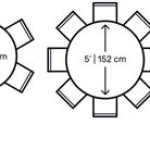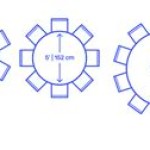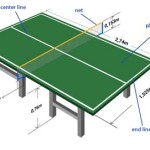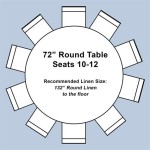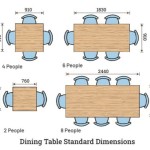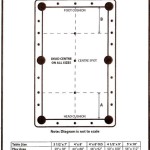What Are Coffee Tables Called In England?
The term "coffee table" is widely understood and used in England to refer to the same low-lying table placed in front of seating in a living room or lounge area. While regional variations in dialect and slang might exist, there isn't a distinct, universally accepted alternative name exclusively used in England for a coffee table. Its function and design are consistent across the United Kingdom, making the established term "coffee table" the standard nomenclature. However, the story of furniture terminology and its nuances reveal a richer history behind this seemingly simple question.
The coffee table evolved from earlier forms, taking shape during the late 19th and early 20th centuries. Before dedicated coffee tables became commonplace, smaller, often repurposed tables served a similar function. These might include tea tables, side tables, or even modified versions of larger tables. The rise of coffee consumption and more relaxed living spaces significantly influenced the development and popularization of the coffee table as a distinct piece of furniture.
Understanding the evolution of the coffee table's function sheds light on its naming. Early on, it was often associated with serving coffee or tea, hence the "coffee table" designation. As living room layouts became more focused on social interaction and relaxation, the coffee table's role expanded. It became a central gathering point for placing drinks, books, magazines, remote controls, and decorative items. This multifarious purpose solidified the name's relevance, even as its actual use extended beyond coffee service.
While "coffee table" remains the standard term, it is useful to explore related vocabulary and alternative descriptions that might be encountered within the English context. These alternative terms often highlight specific aspects of the table's design, material, or intended use, rather than representing a completely separate name for the same piece of furniture.
Related Terms and Descriptive Phrases
Several terms and phrases, while not direct replacements for "coffee table," are frequently used in England to describe specific types or functions associated with coffee tables. These can offer additional context or indicate particular design features.
Lounge Table: This term emphasizes the table's placement and function within a lounge area. It’s a broader descriptor, encompassing any low table suitable for a lounge setting. This term is useful in differentiating it from tables that might be found in dining rooms or other spaces.
Cocktail Table: While sometimes used interchangeably with "coffee table," "cocktail table" tends to imply a more formal or sophisticated design. It may be associated with tables used for serving cocktails or drinks during social gatherings. This distinction relies more on connotation than fundamental structural difference.
Side Table: A side table is generally smaller than a coffee table and is positioned alongside a sofa or chair, rather than directly in front of it. Although distinct in placement, its function can overlap with that of a coffee table, particularly for holding drinks or small items. Whether or not a table is considered a coffee table or side table often depends on its size and location within the room.
Center Table: This can refer to a table placed in the center of a room, which could, in some instances, be a coffee table. However, "center table" is a more generic term that can apply to tables in various settings, not exclusively living rooms or lounge areas. It focuses on the table's position rather than its specific function.
Occasional Table: This is a very general term encompassing various small tables used for different purposes. A coffee table could be considered an occasional table, but the term is too broad to be used as a direct synonym.
Beyond these general terms, descriptive phrases are commonly used to specify the material or design of a coffee table. For instance, one might refer to a "glass coffee table," a "wooden coffee table," or a "marble coffee table." Similarly, phrases like "lift-top coffee table" or "storage coffee table" highlight specific functional features.
Historical Context and Evolution of Furniture Terms
Understanding the history of furniture terminology offers insight into why "coffee table" became the standard term in England. Before the widespread adoption of mass-produced furniture, terms were often more fluid and dependent on local usage. The standardization of language, coupled with the growth of the furniture industry, contributed to the consolidation of terms like "coffee table."
The influence of American culture and design trends also played a role. As American furniture styles gained popularity in England, the accompanying terminology followed. "Coffee table" is a prominent example of this phenomenon, becoming integrated into the English vocabulary due to its simplicity and clarity.
Furthermore, the development of interior design as a professional field contributed to the adoption of consistent terminology. Interior designers and furniture retailers required a common language to communicate effectively with clients and suppliers. This need for standardization further solidified the use of "coffee table" as the primary term.
The absence of a distinctive, uniquely English alternative name for "coffee table" suggests that the term effectively captured the essence of the furniture piece and its function. Unlike some other furniture items that might have retained regional names or variations, the coffee table quickly integrated into the established vocabulary.
Regional Variations and Slang
While "coffee table" is universally understood, regional variations and slang terms might exist in specific areas of England. However, these are unlikely to represent widely accepted alternative names for the piece of furniture. Instead, they might be informal or humorous terms used within particular communities or households.
For example, some families might use a nickname or pet name for their coffee table, based on its appearance or history. These terms are highly specific to individual contexts and would not be recognized or understood by the general population.
Similarly, certain regions might have slang terms for furniture in general, which could be applied to coffee tables in an informal or playful manner. However, these terms would not constitute standard alternative names.
It is important to distinguish between these informal variations and established terminology. While anecdotal evidence of alternative names might surface, the overwhelming consensus remains that "coffee table" is the accepted and widely used term in England.
In conclusion, while regional variations and descriptive phrases enrich the language surrounding furniture, the term "coffee table" retains its position as the standard and universally understood name for this ubiquitous piece of furniture in England. Its history, function, and integration into interior design vocabulary have solidified its place in the English lexicon.

Coffee Table Wikipedia

Coffee Table So Called Hunttable England Circa 1970s Furniture Tables Auctionet

Coffee Table So Called Butler S Tray Reprodux England Furniture Tables Auctionet

Coffee Table England So Called Hunting 1900s Furniture Tables Auctionet

Coffee Table So Called Butler S Tray Reprodux England Furniture Tables Auctionet

Coffee Table Styling Where Saints Go

Coffee Table So Called Hunttable England Circa 1970s Furniture Tables Auctionet

Coffee Table So Called Hunttable England Circa 1970s Furniture Tables Auctionet

What Is The Point Of A Coffee Table

Identifying Parts Of A Table Diagram Included

